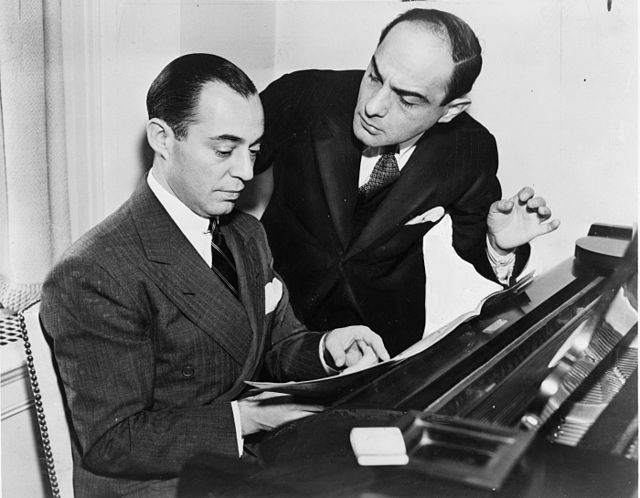The music industry consists of the individuals and organizations that earn money by writing songs and musical compositions, creating and selling recorded music and sheet music, presenting concerts, as well as the organizations that aid, train, represent and supply music creators. Among the many individuals and organizations that operate in the industry are: the songwriters and composers who write songs and musical compositions; the singers, musicians, conductors, and bandleaders who perform the music; the record labels, music publishers, recording studios, music producers, audio engineers, retail and digital music stores, and performance rights organizations who create and sell recorded music and sheet music; and the booking agents, promoters, music venues, road crew, and audio engineers who help organize and sell concerts.
Musicians working in a recording studio
An audience watching a concert
A musician in a recording studio
A studio engineer working with an audio mixer in a recording studio
A songwriter is a musician who professionally composes musical compositions or writes lyrics for songs, or both. The writer of the music for a song can be called a composer, although this term tends to be used mainly in the classical music genre and film scoring. A songwriter who mainly writes the lyrics for a song is referred to as a lyricist. The pressure from the music industry to produce popular hits means that song writing is often an activity for which the tasks are distributed among a number of people. For example, a songwriter who excels at writing lyrics might be paired with a songwriter with the task of creating original melodies. Pop songs may be composed by group members from the band or by staff writers – songwriters directly employed by music publishers. Some songwriters serve as their own music publishers, while others have external publishers.
Songwriting partners Rodgers and Hart working on a song in 1936





